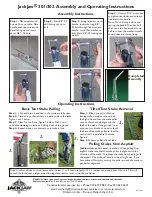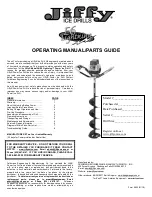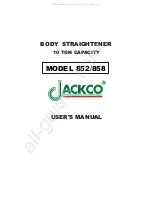
Rish Insu 5Dx
3
1.2
DURING USE
Carefully read the following recommendations and instructions:
CAUTION
Failure to observe the cautions and/or instructions may damage the instrument
and/or its components or generate a danger for the operator. If, during use, the low
battery symbol appears on the display, insert the supply cable into the Mains socket
to start battery recharge. During battery recharge, it is possible to perform
measurements.
Before selecting a new function, disconnect the measuring probes from the circuit
When the instrument is connected to the circuit being tested, never touch any unused lead
Avoid measuring resistance with external voltages; even if the instrument is protected, as an
excess voltage may cause instrument malfunctions
Prevent that the instrument receives voltage during measurement (e.g. a probe slipping from
the measuring point and touching a point under voltage)
Avoid inserting the plug of the supply cable into the Mains socket while measuring.
1.3
AFTER USE
When measurements are completed, turn off the instrument by pressing the ON/OFF key.
1.4
DEFINITION OF MEASUREMENT (OVERVOLTAGE) CATEGORY
Standard "IEC/EN61010-1: Safety requirements for electrical equipment for measurement, control
and laboratory use, Part 1: General requirements", defines what is intended for measurement
category, commonly known as overvoltage category. In § 6.7.4: Measuring circuits, it reads:
Circuits are divided into the following measurement categories:
Measurement category IV
is for measurements performed at the source of a low-voltage
installation
Examples are electric counters and measurements on primary devices protecting against
overcurrents and on ripple adjusting units
Measurement category III
is for measurements performed on installations inside buildings
Examples are measurements performed on distribution boards, circuit breakers, wiring
harnesses, including cables, bars, junction boxes, switches, sockets of fixed installations and
appliances designed for industrial use and other equipment, e.g. stationary motors connected
to fixed systems.
Measurement category II
is for measurements performed on circuits directly connected to the
low-voltage installation.
Examples are measurements performed on household appliances, portable tools and similar
equipment.
Measurement category I
is for measurements performed on circuits not directly connected to
the MAINS.
Examples are measurements performed on circuits not derived from the MAINS and on circuits
derived from the MAINS provided with a special (internal) protection. In this latter case, the
stress caused by the transients is variable; therefore, (OMISSIS) it is necessary that the user
knows the appliance’s resistance to transients.





































